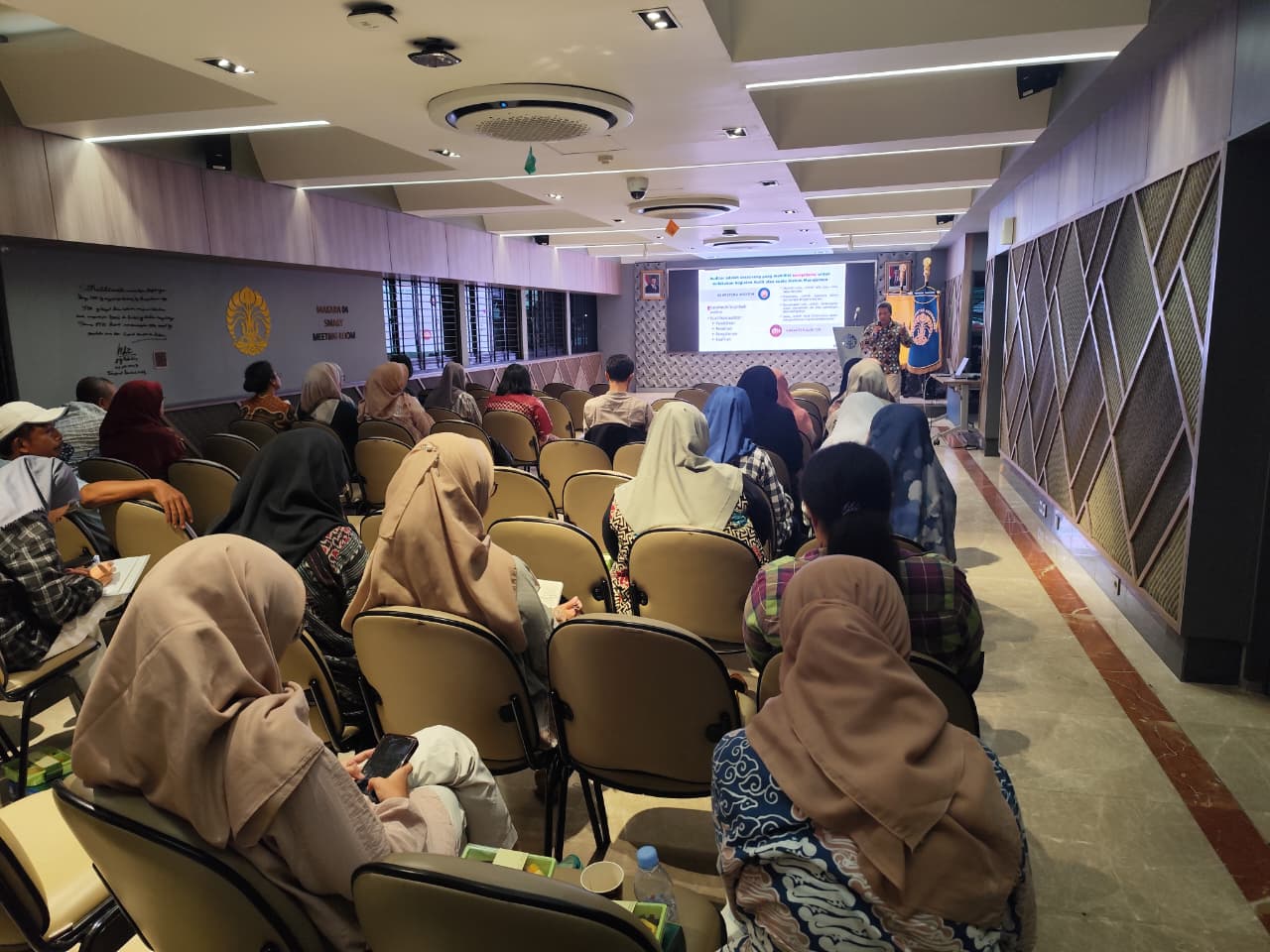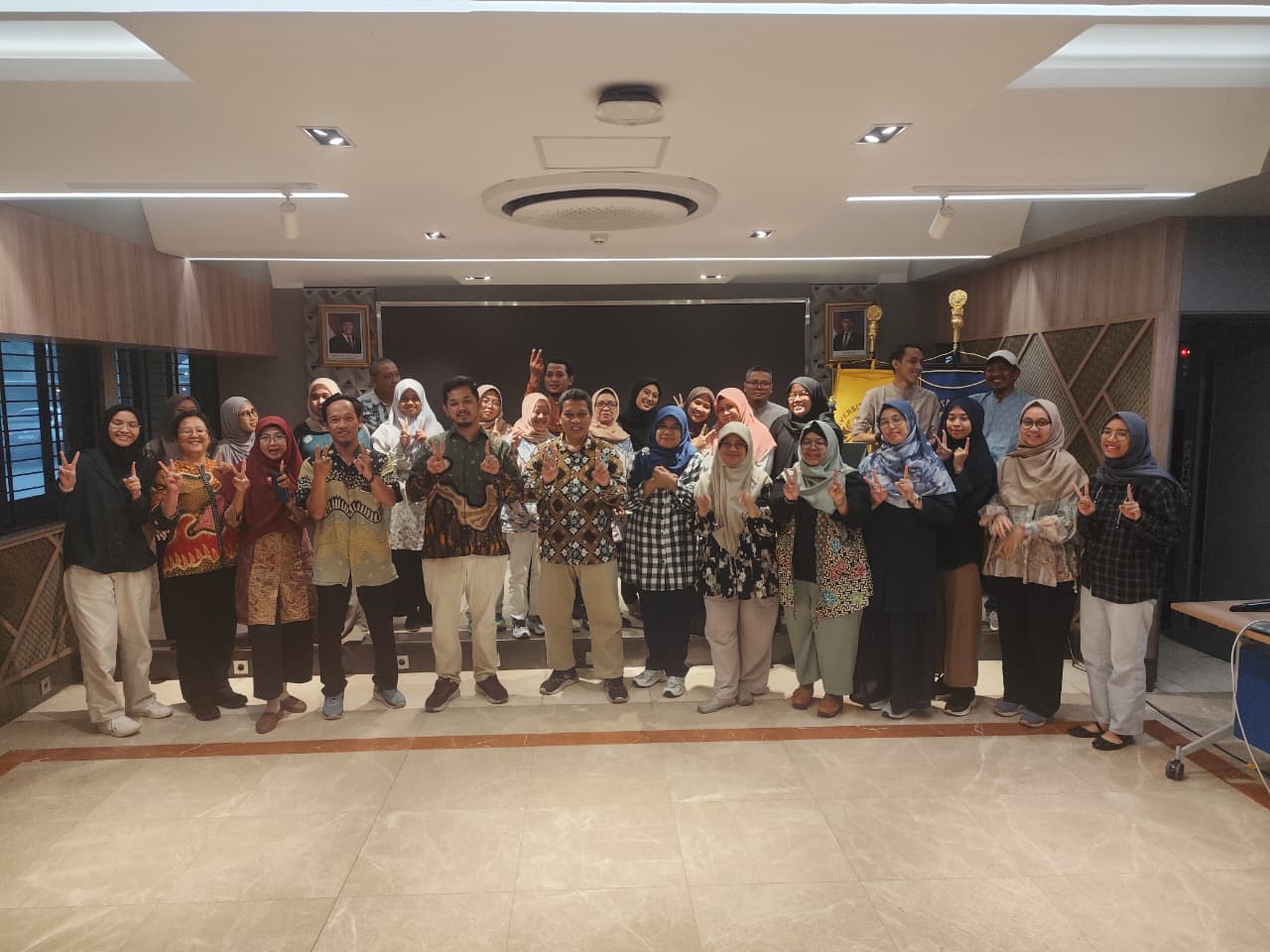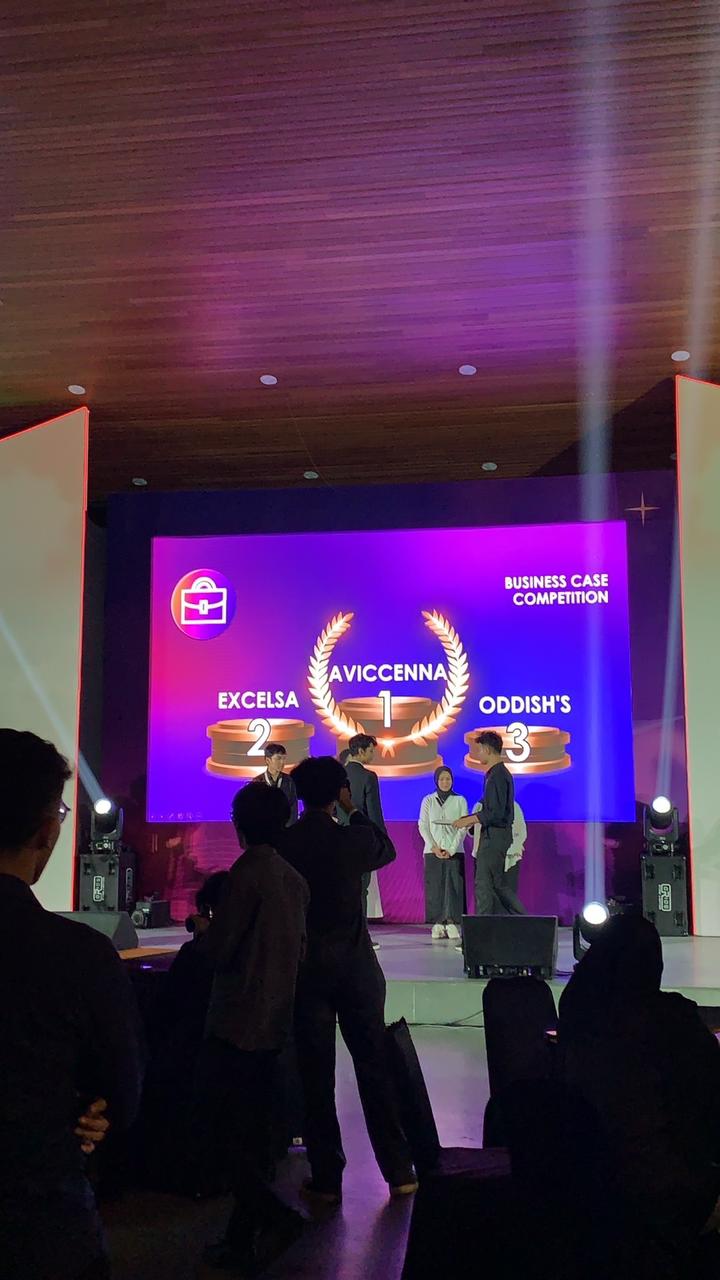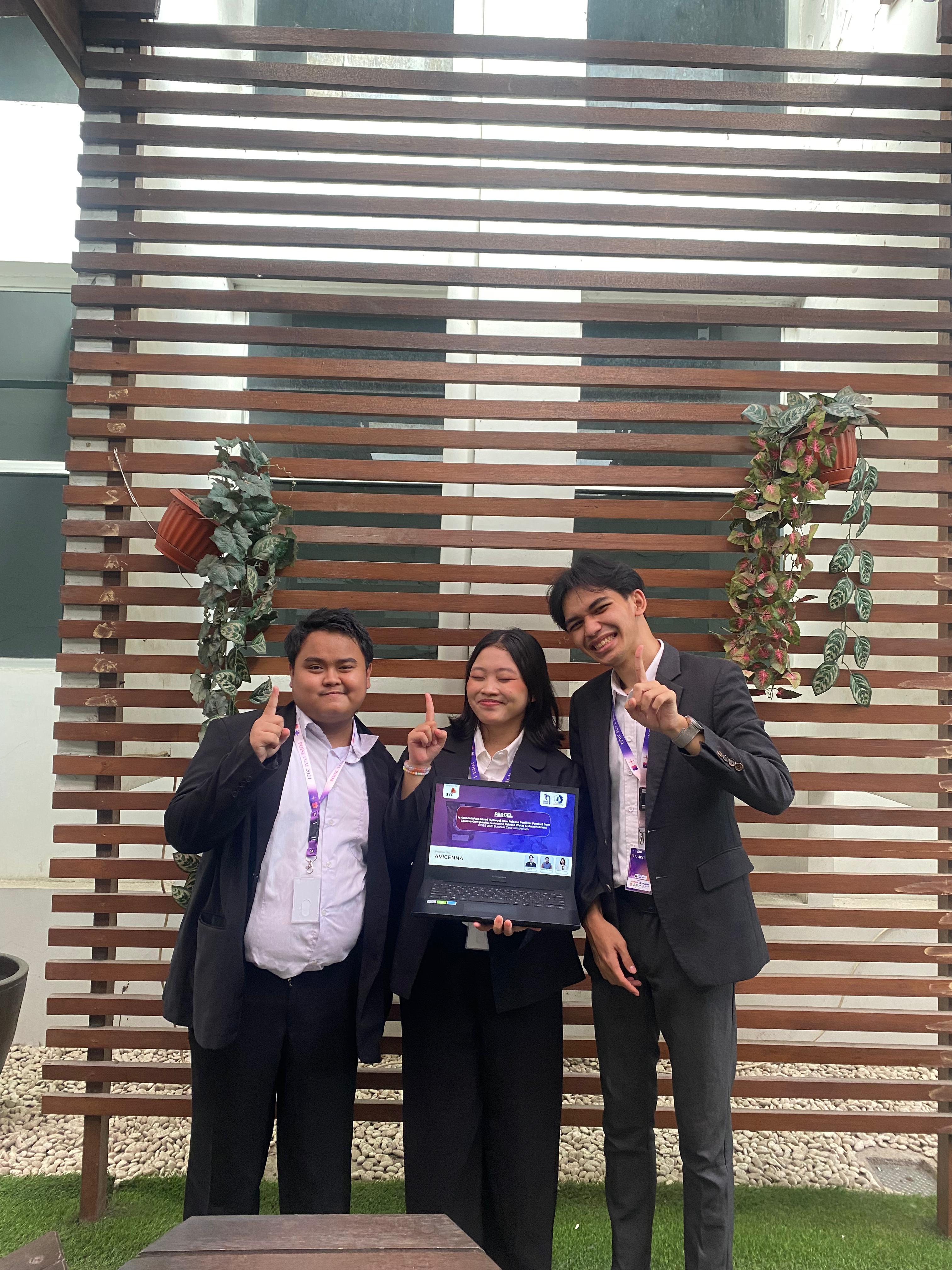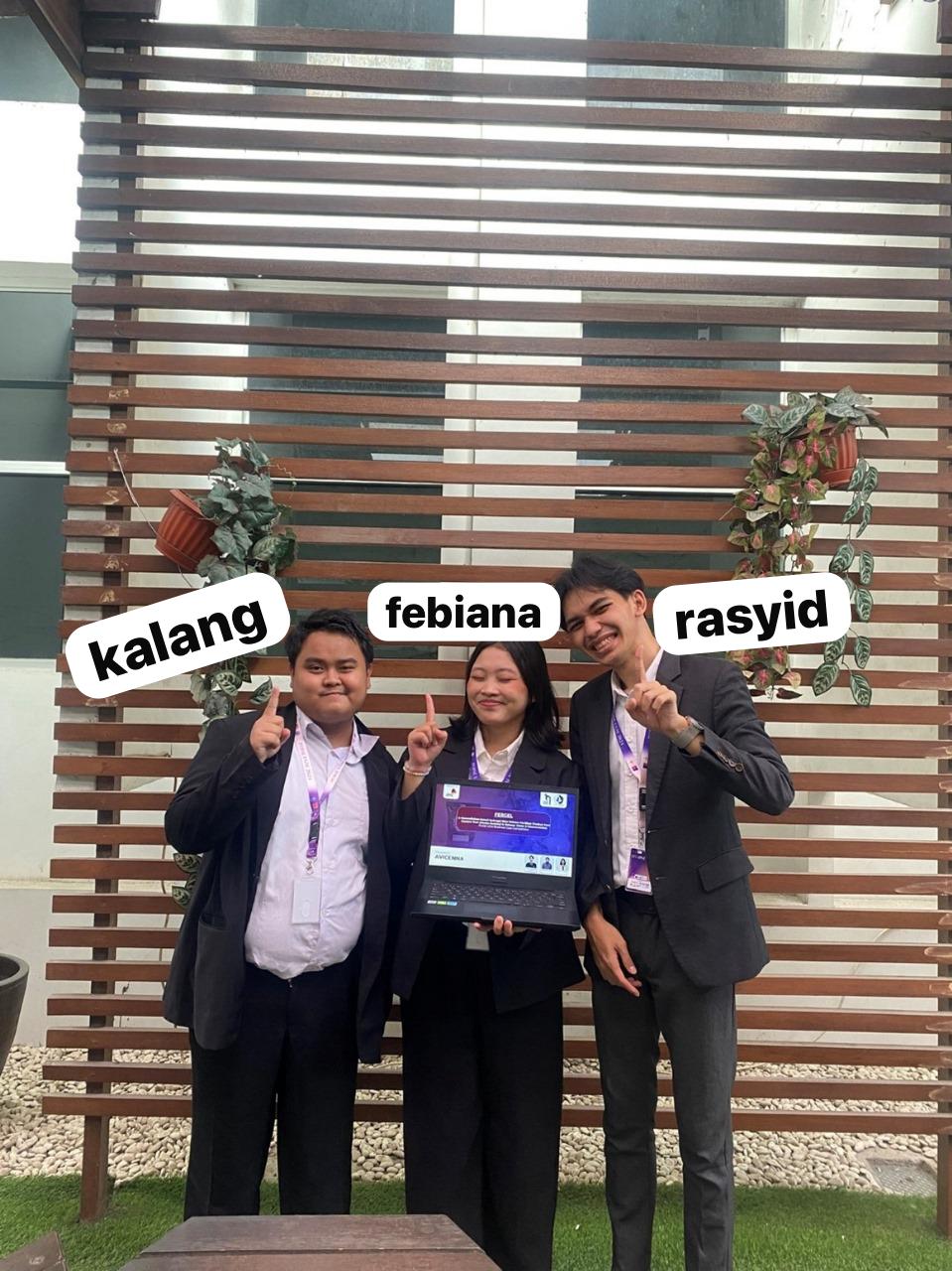The Academic Quality Assurance Unit (UPMA) of the Faculty of Engineering, Universitas Indonesia (FTUI) organized an Internal Auditor Training on the Integrated Management System for Quality, Occupational Safety, Health, and Environment (IMS-OSHSE) at the Smart Meeting Room, FTUI Dean Building (September 12). The training consisted of two main sessions: Internal Auditor Training on ISO 14001:2015 & ISO 45001:2018 and Internal Auditor Training on ISO 9001:2015.
The training was attended by coordinators and members of the IMS-OSHSE team appointed through the FTUI Dean’s Decree. The program aimed to equip prospective internal auditors with the knowledge and skills necessary to conduct audits professionally, objectively, and in accordance with international standards.
In his opening remarks, Prof. Dr. Ir. Winarto, M.Sc., Head of UPMA FTUI, emphasized the importance of maintaining a culture of quality and ensuring the continuity of ISO 9001, ISO 14001, and ISO 45001 accreditations ahead of the upcoming external audit in October.
“I hope we can work together to uphold this quality assurance system so that it continues to be effectively implemented within the Faculty of Engineering,” he stated.
The first session focused on internal auditor training for ISO 14001:2015 and ISO 45001:2018, designed to strengthen participants’ ability to evaluate the implementation of occupational safety, health, and environmental management systems in an integrated manner. The materials covered the alignment of ISO 45001:2018 (Occupational Safety and Health Management System) and ISO 14001:2015 (Environmental Management System) with national regulations, including SMK3 Government Regulation No. 50 of 2012.
Trainer Santoso Joko Waluyo explained the core principles of internal auditing based on ISO 19011:2018, covering audit preparation, field execution, result reporting, and corrective follow-up. Participants were also trained to develop audit checklists and use supporting documents such as the IMS-OSHSE manual, OSHSE procedures, work instructions, and field notes, ensuring that the audit process is conducted systematically and efficiently.
The second session centered on Internal Auditor Training for ISO 9001:2015, providing participants with the necessary knowledge and skills to audit the Quality Management System (QMS). The training covered audit objectives and scope, the distinction between internal and external audits, and the competencies required of a professional auditor.
Participants also learned about audit planning, checklist development, interview techniques, examination of documented evidence, performance evaluation, and audit reporting. Case studies were used to help participants identify nonconformities, recognize improvement opportunities, and develop corrective actions aligned with the clauses of ISO 9001:2015. Through this approach, internal auditors are expected to ensure that FTUI’s quality management system operates consistently, effectively, and in alignment with international standards.
This training is expected to produce competent and certified internal auditors with an in-depth understanding of the IMS-OSHSE standards, strong planning skills, mastery of audit methodology, and structured analytical and reporting capabilities.
FTUI Dean, Prof. Kemas Ridwan Kurniawan, S.T., M.Sc., Ph.D., expressed his appreciation for the implementation of the program.
“This training is a strategic step for FTUI to strengthen its culture of quality and prepare skilled internal auditors. With competent auditors, FTUI is not only ready to face external audits but also committed to maintaining academic quality, governance, and services that meet international standards,” he remarked.
***
Public Communication Office
Faculty of Engineering, Universitas Indonesia




